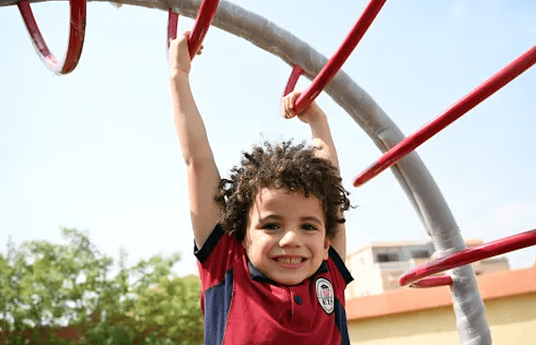In many low-income Nigerian communities, girls are disproportionately affected by poor educational access, gender stereotypes, and lack of self-confidence. We observed that traditional classroom settings were not enough to engage these girls or address the structural barriers they face. Many were falling behind academically, had low self-esteem, and lacked safe, inclusive spaces for expression and growth.
We created EduGirls Nigeria to provide a new pathway, one that merges sport and education, to reach girls where they are, inspire them to dream bigger, and equip them with the tools to succeed. Football is a beloved and widely accessible sport in Nigeria, and we saw an opportunity to use it as a catalyst for change. By integrating literacy and numeracy training into football sessions, and surrounding the girls with strong female role models and mentors, the project offers a holistic, empowering solution. Beyond academic improvement, we aimed to build leadership skills, teamwork, discipline, and agency in each girl, qualities often denied to girls in traditional settings. This innovation is not just about improving test scores; it’s about building a generation of bold, brilliant young women ready to shape the future of Nigeria.
EduGirls Nigeria operates through weekly football training sessions that integrate structured literacy and numeracy coaching. Each session includes:
1. Warm-up football drills that promote physical wellness, teamwork, and discipline.
2. A learning segment where girls engage with customized academic content linked to their school curriculum.
3. Group discussions and leadership exercises focused on confidence, communication, and goal setting.
The sessions are led by trained coaches and volunteer mentors, many of whom have backgrounds in both education and sports. We assess the girls’ academic progress regularly through baseline and follow-up tests, while also tracking soft skills development like teamwork, self-esteem, and school participation. We also engage parents, teachers, and local leaders through workshops and community events to strengthen support systems around the girls. We hold mentorship meetups, bring in inspiring female role models, and celebrate girls' achievements through match days and academic exhibitions. In addition, we partner with schools to integrate our program into the school timetable, ensuring that girls do not miss classroom hours. So far, we've maintained a 97% attendance rate and seen remarkable academic gains, 50% in numeracy and 68% in literacy in just six months.
Since launching in January 2023, EduGirls Nigeria has steadily gained traction. Initially piloted in one school with 50 girls in Ota, Ogun State, the project caught the attention of educators, parents, and local officials due to its high attendance rates and measurable academic progress. We’ve leveraged word of mouth, community visits, and visibility at local school competitions to introduce the program to new audiences. Key partnerships have also helped our reach, such as with Caring Community Creators (which donated football kits) and WASIMI Summer Camp (where several girls were selected for elite training). Our leadership team has been featured at local education forums, and we were recognized for our innovative approach to girls’ education by stakeholders in the Ado-Odo/Ota Local Government Area. The success of the pilot has spurred conversations with more schools and organizations interested in adopting or adapting the model.
Currently, we have reached 150 girls and we are developing a playbook that documents our methodology, tools, and training modules, making it easier to replicate the model in other underserved regions of Nigeria.
We’ve continuously adapted based on feedback from participants, parents, and coaches. Originally focused primarily on football and basic literacy, we realized the girls needed broader support to thrive. We therefore expanded the curriculum to include numeracy, leadership coaching, and mental and menstrual health support through storytelling and group reflections. We introduced a mentorship component, bringing successful female role models to speak with and mentor the girls. This helped to reinforce aspirations and combat the limiting beliefs that many of the girls held about their potential. This gamified approach increased learning retention and kept energy high during sessions.
To improve monitoring, we introduced baseline and termly assessments to track literacy/numeracy growth and developed a simple dashboard for coaches to report progress weekly.
To try the EduGirls Nigeria model in your community or school, follow these steps:
1. Form a Team: Recruit at least two trained coaches or volunteers with a passion for football and youth development. At least one should have a basic education or teaching background.
2. Secure a Venue: Identify a safe playing field near or within a school compound where weekly sessions can be held.
3. Gather Materials: Prepare basic football equipment (balls, cones, kits), and download our learning-through-play literacy and numeracy worksheets.
4. Training: Reach out to our team to access our facilitator training guide. We offer virtual onboarding for new coaches and partners interested in implementing the model.
5. Engage Schools and Parents: Build relationships with local schools and parents. Their buy-in ensures sustained attendance and integration into the academic calendar.
6. Track Progress: Use our simple assessment tools to establish baseline scores and monitor improvement over time.


